We have heard plenty from our morally-rotten politicians, journalists who have no idea what a constitutional monarchy is, and hateful academics who idiotically used the death of a much-loved woman to fuel their Marxist race-war.
Even President Biden chipped in with a rare moment of cultural sanity, deciding to lower flags across America to half-mast.
When asked, ‘How could the death of the Queen affect the boundaries between English communities around the world?’ it was Canadian political commentator Jordan Peterson who gave the most interesting reply during a public lecture in the UK, hours after hearing of Her Majesty’s passing.
In order to answer the question properly, he spoke first about the complexity of celebrity fame and how humanity’s predisposition to worship its leaders becomes dangerous when there are only political figures upon which to bestow that affection.
‘I’ve been around famous people a lot now, and there are definitely tiers of fame. There’s ‘not famous’ – and that’s normal. Then there are ‘celebrities’ that are maybe known locally and nationally. Then there are celebrities that are known internationally. And then there’s celebrities like the Queen who everyone everywhere in the world knows – who among famous people, they’re hyper famous – and Trump is in that category.’
He was speaking of his experience at the Kentucky Derby, where 160,000 people were packed in to see former President Trump speak. Jordan Peterson likened the crowd’s energy to what the atmosphere must have been to see the Kennedys at the height of their power.
‘We were up there in the restaurant and the place was just buzzing. Trump came in and it was – you could just feel the energy the electric energy. And I thought, this is not good… This is too much, man, this is too much [fame] for anybody to bear.’
It is the condensing of this fame into a political figure that concerned Jordan Peterson the most.
‘On the monarchical front, you have four divisions of power. You have executive, legislative, judicial, and symbolic. And the monarch holds the symbolic weight.
‘That’s really smart because it separates [fame] to some degree from the political weight. You see what happens in the US is, first of all, the President tends to turn into the czar…
‘They have this idea in the US now [of the] ‘First Lady’, it’s like – what the hell is that? We don’t have that in Canada. Nobody knows anything about Justin Trudeau’s wife and that’s been the history of Canadian politicians. Just because you’re Justin Trudeau’s wife doesn’t mean you’re queen.
‘But in the US, you know, Hillary Clinton … maybe she’s “queen” and that’s partly because there is that demand for the symbolic weight that the leader should manifest.’
Which is true. Despite all of its ‘for the people’ cries within communism, its state leaders are quickly deified into all-powerful gods. In places such as North Korea, their family lines are literally made divine via law in a way royals – even in historical times – have never sought to do.
Without a symbolic leader to balance out the political class, the political head of a nation becomes a figure of extreme (rather than emotive) worship. This is a situation orders of magnitude more dangerous, as these leaders have actual political power to write law whereas the Crown’s only power is to sack a government that disobeys the Constitution and send power straight back into the hands of the people via election.
In many ways, a constitutional monarchy is the most pure form of ‘people rule’ as it robs politicians of supremacy.
‘You also see that [political worship] to some degree in the US – which is a ‘star-worshipping culture’. Obviously, with the glitterati and the royalty of Hollywood – it’s [a human emotion that’s] better put there in the entertainment section, even though that’s also somewhat dangerous because it tends to elevate actors into pronouncements of ethical virtue.
‘Still, it is better there than in the political realm. Trump… He is like King and President all rolled up into one and that’s just too much. So, I really admire the monarchical system.’
We see the same thing in Australia. While we may support or have affection for various Prime Ministers, as they are party-political, at any one time half the population will either oppose or outright despise them. This makes it impossible for Prime Ministers (or Presidents) to serve as figures of societal unity, even if they are ‘the best’ of the batch. The Queen was a figure above politics who served all of her subjects equally. Having a head of state that sits outside the political sphere is a calming force on an otherwise breakneck political system that eats itself every four years.
As Jordan Peterson says, it is an excellent thing to have a permanent and historically significant figure sitting above ambitious politicians who may have an inclining toward authoritarianism.
‘You had someone around to intimidate all your Prime Ministers. That’s a really good idea and I’m sure she did a fine job of that.
‘You can imagine how useful it was psychologically for the Prime Minister who has monarchical temptations, in some sense like Trump did, to have to go on a regular basis to this remarkable person who’d seen this immense span of political history and confess – in some real sense – and to be subject to her cautious and wise judgment. I think she was a woman who was traditional and cautious and wise in the highest degree.’
Although despairing that the most likely outcome of losing the Queen would be for the Commonwealth and the monarchy to break apart – as it had done to the detriment of other nations that had left the UK behind – Jordan Peterson did note that there was hope for His Majesty King Charles III if the people of the Commonwealth were able to recognise the uniqueness of their situation.
‘I wish your new King the best, that’s for sure, but you know maybe you’ll get lucky. Maybe your monarch, with your support, will rise to the occasion and your country – and the rest of the British Commonwealth – will recognise that what they have in the shared bonds that unite them based on English common law and the great democratic tradition that’s so much a function of this country.
‘This country really, in particular, I mean … you’re the birthplace of Canada, the US, Australia, New Zealand, and India – these amazing countries. These free, democratic, productive, generous societies. It’s quite the accomplishment.’
Jordan Peterson’s comments on the monarchy, filled with oft-forgotten facts, were more considered than most commentators. However, it is what he said at the end of the interview about Western Civilisation at large that deserves quoting in full.
‘I see in England and Europe such apprehension and such refusal to note the greatness of your country and its contributions.
‘No one in the US ever talks about the fact that the UK was the country that eradicated slavery. Like – that has only happened once in the whole history of the human race.
‘When your country did it, it took 175 years and a huge economic [burden]. It was your country and the great people [of the UK] who were spearheading that movement. That [decision] established, once and for all on the political and economic front, that [slavery] was not to be tolerated. Then it took a while for that idea to spread everywhere. It still hasn’t because there’s plenty of slaves in the world. The estimate’s 30 million at the moment.
‘There are very few people who will come out forthrightly and say that.
‘Your country was definitely one of the moral forces in the world – the primary moral force on the political front – yet mostly what characterises a fair bit of self-image in Great Britain is shame.
‘Every country has things to be ashamed of, but not every country also has things to be proud of.
‘What’s going to happen with the Commonwealth?’ asks Jordan Peterson, as a final remark. ‘Well… Maybe we’ll wise up and recognise that we have something absolutely precious to guard and then maybe we’ll guard it.
‘To do that, we’re going to have to defend ourselves against unwarranted accusations of guilt – not that there’s not something to be guilty about, you know, because we’re all the beneficiaries of the atrocities of history and we have to atone for that in our personal behaviour, but by the same token, man, you’re supposed to separate the wheat from the chaff and not just call it all chaff.
‘When you look at your own history you think we stumbled plenty, but we still walked uphill and you, in your country, you can say that more than most…’
Got something to add? Join the discussion and comment below.
Get 10 issues for just $10
Subscribe to The Spectator Australia today for the next 10 magazine issues, plus full online access, for just $10.

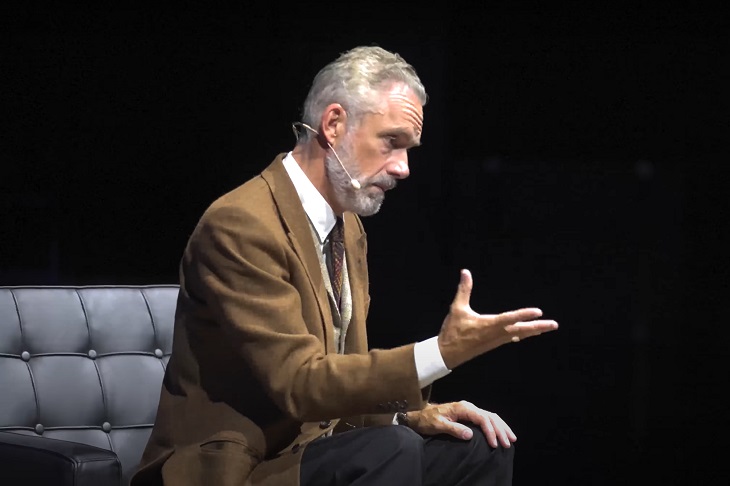
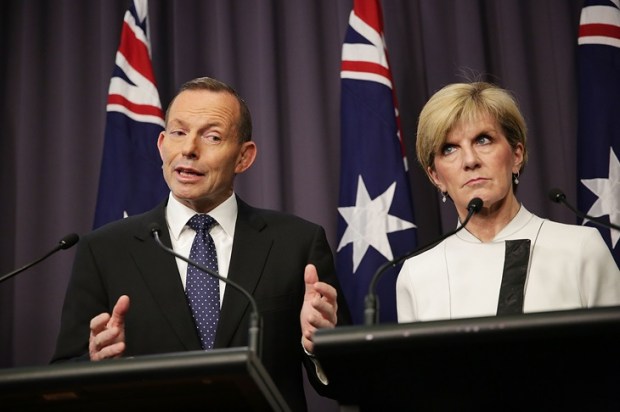
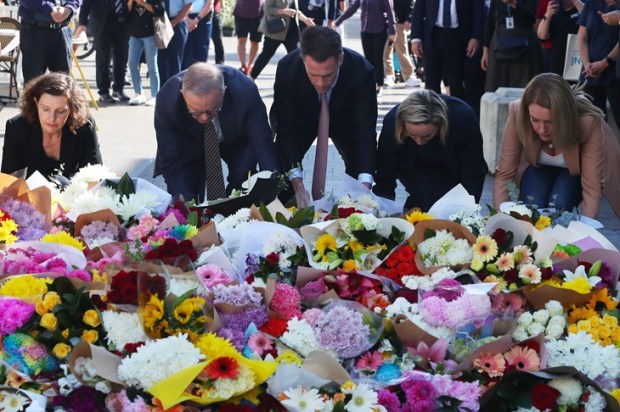

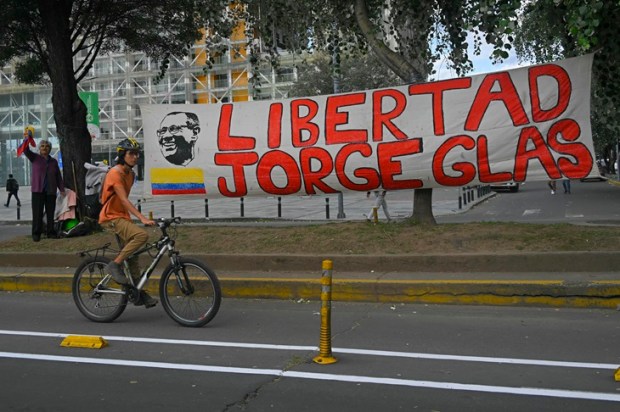
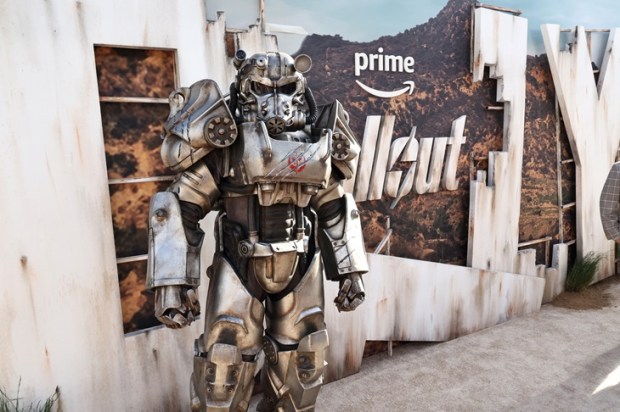



















Comments
Don't miss out
Join the conversation with other Spectator Australia readers. Subscribe to leave a comment.
SUBSCRIBEAlready a subscriber? Log in